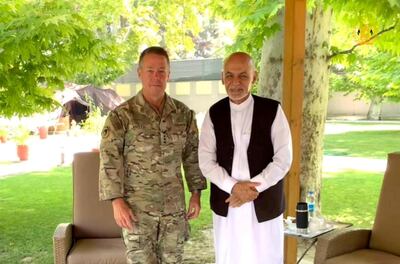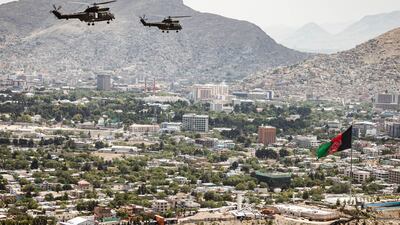Gen Austin Scott Miller, formerly America's top commander in Afghanistan, departed Kabul by helicopter on Monday. Before leaving, he used a farewell address to warn the Taliban that the US would not tolerate "the imposition by force of a government in Afghanistan". As he said this, Taliban forces were continuing their rapid advance across much of the country.
The Taliban does not have a storied history of abiding by US warnings. A promise last year to "reduce violence" in exchange for the US withdrawal has fallen by the wayside. The Taliban continue to take new districts by the week, and now claim to hold 85 per cent of the country's territory. Meetings with the US in Doha appear to have achieved little, other than allowing the Taliban to claim an interest in diplomacy.

Western states have come to reconcile themselves with the idea of a power-sharing administration that includes the Taliban. The UK government has said it is prepared to work with the group if it became part of the country's government. But as much as the Taliban has entertained and even encouraged such illusions, the group has invested little time in developing its idea of what that could look like.
The current government in Kabul is on the back foot at home. It is not in a position to build consensus at the negotiating table. Far from strengthening the government's position, attending peace talks that are arguably doomed could be perceived as little more than negotiating a surrender.
The US has said it will be the Afghan people, as part of a political process, who decide the country's fate. Today's reality is far from that. For decades, even during Nato's campaign, most Afghan citizens have not had a say in the way the country works, and the ascendant Taliban despises democracy. As it rips through the country, people are pessimistic not just about the prospect of having a political voice, but for their very safety. Interpreters who once helped western forces are clamouring for an exit, as is a generation of young Afghans who have never known Taliban rule. Former resistance fighters are taking up arms to defend their communities, as are an increasing number of local militias, raising the prospect of a complicated fragmentation of the country's security landscape and an escalation of violence.
All of this taken together suggests that Afghans are contending with a damagingly ambiguous reality. As they rapidly turn their backs on the country, western forces pledge ongoing support in little detail, and speak of the possibility of a stable future if "the people" take the baton given to them by a 20-year campaign. But many of those people who could make the country a better place, if only they were truly empowered, may soon feel the need to leave Afghanistan just as quickly.


